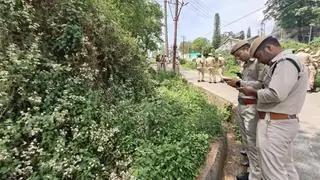Monitoring, managing and controlling all energy intensive infrastructure under one roof has given Capgemini’s India campuses a big edge. It has managed to save 29 per cent of energy annually even as its entire operation runs on 100 per cent renewable energy.
The company has managed this by setting up what it calls an energy command centre (ECC) in Bengaluru, which is digitised, data-driven and uses an IoT (Internet of Things)-based architecture to monitor and manage how its energy assets perform in Capgemini offices across the country. The command centre uses a small team of experts and automation to measure and predict virtually all metrics. At one glance you are able to tell the amount of renewable energy being generated, where how much is being deployed, the indoor air quality, the performance of the air-conditioning equipment, the health of the assets and more.
“This enables us to derive the fullest efficiency from these assets throughout their lifetime,” explains Viswanathan Rajendran, Vice-President and head of Engineering Services and Sustainability, Corporate Real Estate Services, India, as he details the sustainability ambitions of Capgemini, which include being carbon neutral by 2025, having a sustainable supply chain by 2030 and attain net zero by 2040.
Storage solutions
Apart from captive solar plants in eight campuses, the company has battery storage solutions at two locations. “The extra energy generated in the solar plants is stored in these batteries and released for evening and night operations,” says Rajendran.
But that is not all. ECC is poised to extend its services to Capgemini’s Europe and US operations as well. This year it intends to assess and pilot its capability to monitor and manage energy infrastructure in some global facilities and then extend its reach. He explains that ECC works on an auto-pilot mode and a ticket will be raised when some action is needed. The expert from ECC will be able to guide the team at the remote location to take the correct action needed.
Critical resource
The ECC is also planning to extend its services to monitor energy needed for electric vehicle charging for staff transport and water management at the campuses where it has water treatment plants. For the latter, it will help create a balance in water usage between fresh and treated water and help in monitoring water quality. “Next to energy, water is a critical resource,” concludes Rajendran.






